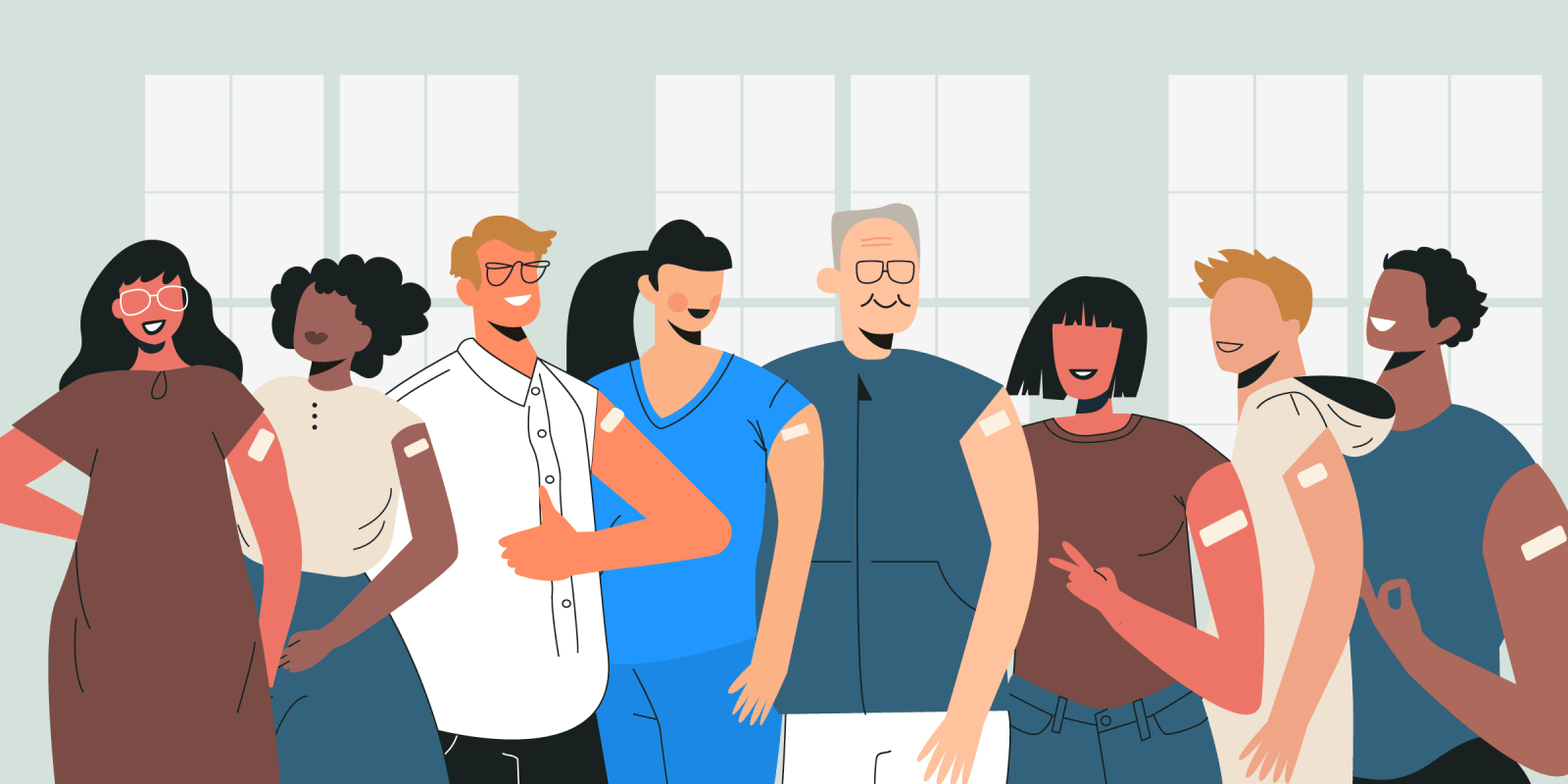The other COVID-19 vaccinator volunteers and I stretched as we exited the bus to enter the pop-up vaccination site. It was a stately church in Fort Washington with a grassy lawn surrounded by a wrought iron fence. The volunteers were mostly third- and fourth-year medical students, myself included. We were hoping to administer 70 first doses that evening to local community members. On the bus ride, another volunteer had told me about how her uncle had died due to COVID-19 last year. In the shadow of grief, she was finding meaning and hope in giving vaccinations. We took our seats at our stations and waited for the patients to come.
They came quickly and steadily — eager, stoic, anxious, or a mix. As I counseled each one on what to expect, they shared with me their thoughts and feelings. My first patient was a middle-aged woman named Dora. She was concerned about a vaccine reaction preventing her from working. We discussed the very real possibility of vaccine side effects, such as flu-like symptoms and arm soreness, and I encouraged her to take ibuprofen or acetaminophen to help with any discomfort. “OK, I guess I had better get it over with,” she finally said, and I administered the shot.
Next was Robert, a young man who hid his nervousness by FaceTiming a group of his friends while he got vaccinated. I waved hello to the screen of faces as I swabbed his upper arm with an alcohol wipe. They politely listened to my vaccine spiel, and cheered once the vaccine was given. “Hey, it’s OK if I drink tonight, right?” Robert asked as he stood up. I told him yes, in moderation.
An older man named Joseph came after Robert. He gave monosyllabic responses and said no when I asked him if he had any questions for me. After I gave him the vaccine, he said quietly, “I’m glad you’re the one who gave me the vaccine.”
“How come?” I asked.
“Because you’re a Christian,” he said, pointing to my cross necklace. I thanked him for his kind words as I pointed him toward the post-vaccination observation area.
An imperious woman, Rebecca, came next. She told me that her parking would run out in 30 minutes, so she hoped I would be quick. I obliged, running through all the standard questions and administering the shot in no more than five minutes.
Soon after, a gray-haired couple came together to my station: Gerald and Millie. They held hands as Millie took a seat. They were nervous to get the vaccine because they had had COVID-19 before. The infection had not been severe, but it had also not been pleasant. They were worried the vaccine would make them feel the same way. We discussed the benefits of receiving the vaccine despite having possible natural immunity from a prior COVID-19 infection, and I explained to them the vaccine side effects that they could expect. Though another vaccination station opened up while I was counseling them, Gerald insisted on receiving the vaccine from the same person as Millie. “We do everything together,” he told me. When they went to the observation area, they pulled together two of the socially distanced chairs so that they could sit next to each other.
At the end of the evening, Natalie came to my station. Thin and androgynous, Natalie was only 16, one of the few minors who could receive the vaccine at that time. I did a double take when I verified her birthday. Born in the 2000s? Surely that couldn’t be right. Her father hovered over her, seeming more anxious than she was. “I get shots all the time,” she said. “Dad, can you please go wait over there?” When she asked me to change her contact email to her own instead of her dad’s, I obliged.
Woven among these patients — Dora, Robert, Joseph, Rebecca, Gerald, Millie, and Natalie — were many others, each with their own unique thoughts and concerns about the vaccine. Many had lost family members to COVID-19 and were eager to be vaccinated. Some were deeply reluctant and even argumentative. Others said almost nothing, unreadable behind their masks. I knew that each patient who came to my station had undertaken a journey to arrive there, one that required sifting truth from myth, weighing costs and benefits, and navigating logistical challenge upon challenge. I was grateful to each patient, and I was grateful to my fellow vaccinators.
I have played a tiny part in fighting the pandemic thus far, but as I transition from medical student to resident, I hold these final patient interactions of my time in medical school dear. I am awed by the responsibility and joy of providing care to patients, and I am eager and hopeful for the beginning of my work as a physician — and for the end of the pandemic.
Which experiences from your medical career stand out most? Share your sharpest memories in the comments!
Ashley Wu is a newly graduated medical student from Weill Cornell Medical College. She will soon begin psychiatry residency at University of Southern California. In her spare time, she enjoys baking sourdough, crocheting, and attempting various arm balance yoga poses. Ashley is a 2020–2021 Doximity Op-Med Fellow.
All names and identifying information have been modified to protect patient privacy.
Click here to see more perspectives on COVID-19 from the Doximity network.
Click here for up-to-date news about COVID-19 on Doximity.






